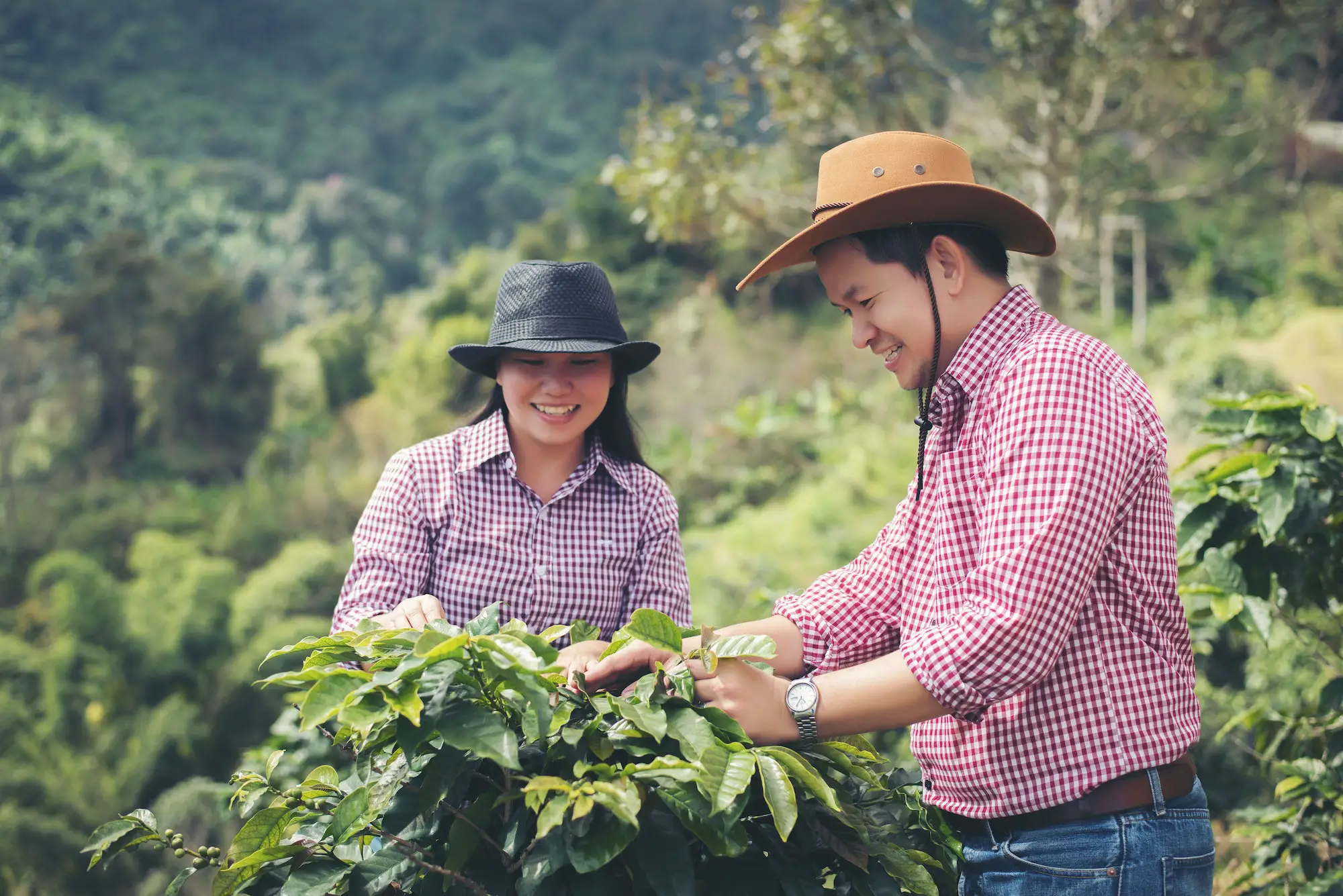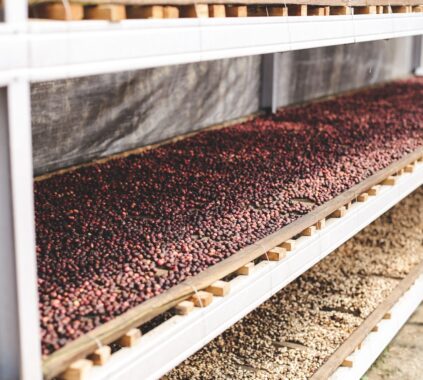Coffee is one of the most popular beverages worldwide, and its production has a significant impact on the environment and local communities. As consumers become more aware of the environmental and social impacts of their purchases, sustainable coffee farming is gaining momentum as a way to produce coffee while preserving the natural resources and communities where it is grown. In this article, we will explore the concept of sustainable coffee farming, its benefits, and how it can be practiced.
Check out our Coffee Corner for Everything Coffee Related
Table of Contents
Did you know that coffee is the second most traded commodity globally, after oil? With such high demand comes great responsibility to protect the environment and communities where it is grown.

Coffee… Sustainable?
Coffee is a crucial crop for many countries worldwide, and its production has significant economic, social, and environmental impacts. However, conventional coffee farming practices often have negative consequences such as deforestation, soil degradation, water pollution, and exploitation of workers. Sustainable coffee farming, on the other hand, prioritizes environmental and social responsibility while ensuring economic viability for farmers. By adopting sustainable practices, farmers can protect natural resources and biodiversity, improve coffee quality and productivity, and create a better livelihood for themselves and their communities.
What is Sustainable Coffee Farming?
Sustainable coffee farming is an approach to coffee production that prioritizes environmental and social responsibility while ensuring economic viability. It involves practices that preserve natural resources, biodiversity, and ecosystems, such as shade-grown farming, soil conservation, and water management. Sustainable coffee farming also focuses on the well-being of coffee farmers and their communities by providing fair wages, safe working conditions, and access to education and healthcare.

Benefits of Sustainable Coffee Farming
Sustainable coffee farming has several benefits, including:
- Protecting the environment: Sustainable coffee farming practices help to conserve natural resources, prevent soil erosion and degradation, reduce the use of agrochemicals, and preserve biodiversity and ecosystems.
- Improving coffee quality: Sustainable farming practices such as shade-grown farming and intercropping can improve coffee quality by enhancing flavor, aroma, and complexity.
- Enhancing productivity: Sustainable coffee farming practices can increase productivity by improving soil health, pest management, and water management.
- Supporting communities: Sustainable coffee farming promotes social responsibility by providing fair wages, safe working conditions, and access to education and healthcare, improving the well-being of coffee farmers and their communities.
How to Practice Sustainable Coffee Farming
There are several practices that coffee farmers can adopt to practice sustainable coffee farming, such as:
- Shade-grown farming: Shade-grown coffee farming involves growing coffee plants under a canopy of trees, which provides shade and helps to preserve biodiversity and ecosystems. Shade-grown coffee is also known for its high quality and complex flavor.
- Intercropping: Intercropping involves growing coffee plants alongside other crops such as fruit trees, which can improve soil health, increase biodiversity, and provide additional sources of income for farmers.
- Soil conservation: Soil conservation practices such as cover cropping, composting, and mulching can help to improve soil health, prevent erosion and degradation, and reduce the need for synthetic fertilizers.
- Water management: Water management practices such as rainwater harvesting, drip irrigation, and water-efficient processing can help to conserve water resources and prevent water pollution.

A Growing Trend
Sustainable coffee farming is a growing trend in the coffee industry, and for a good reason. By prioritizing environmental and social responsibility, coffee farmers can protect natural resources, improve coffee quality and productivity, and support the well-being of their communities. As consumers, we can also contribute to sustainable coffee farming by choosing coffee brands that prioritize sustainability and paying a fair price for coffee. Together, we can create a more sustainable and equitable coffee industry for everyone.

FAQs About Sustainable Coffee Farming
1. What is shade-grown coffee?
Shade-grown coffee refers to coffee plants that are grown under a canopy of trees, rather than in direct sunlight. This method of coffee farming has several benefits, including the preservation of biodiversity and ecosystems, and the production of high-quality coffee with complex flavor profiles.
2. How does sustainable coffee farming benefit the environment?
Sustainable coffee farming benefits the environment by promoting practices that conserve natural resources, prevent soil erosion and degradation, reduce the use of agrochemicals, and preserve biodiversity and ecosystems. These practices include shade-grown farming, intercropping, soil conservation, and water management.
3. How does sustainable coffee farming benefit coffee farmers and their communities?
Sustainable coffee farming benefits coffee farmers and their communities by providing fair wages, safe working conditions, and access to education and healthcare. It also promotes economic viability for farmers by improving coffee quality and productivity, and reducing the reliance on expensive inputs such as synthetic fertilizers.
4. How can consumers support sustainable coffee farming?
Consumers can support sustainable coffee farming by choosing coffee brands that prioritize sustainability and pay a fair price for coffee. Look for certifications such as Rainforest Alliance, Fairtrade, and UTZ Certified, which indicate that the coffee has been produced using sustainable farming practices and that farmers have been paid fairly for their work.
5. Is sustainable coffee more expensive?
Sustainable coffee may be slightly more expensive than conventional coffee, as it often involves additional costs such as certification fees and higher wages for farmers. However, paying a fair price for coffee ensures that farmers can continue to produce high-quality coffee in a sustainable and equitable manner.
Daily Demitasse is a participant in the Amazon Services LLC Associates Program, an affiliate advertising program designed to provide a means for sites to earn advertising fees by advertising and linking to Amazon.com. We also participate in other affiliate programs which compensate us for referring traffic.















